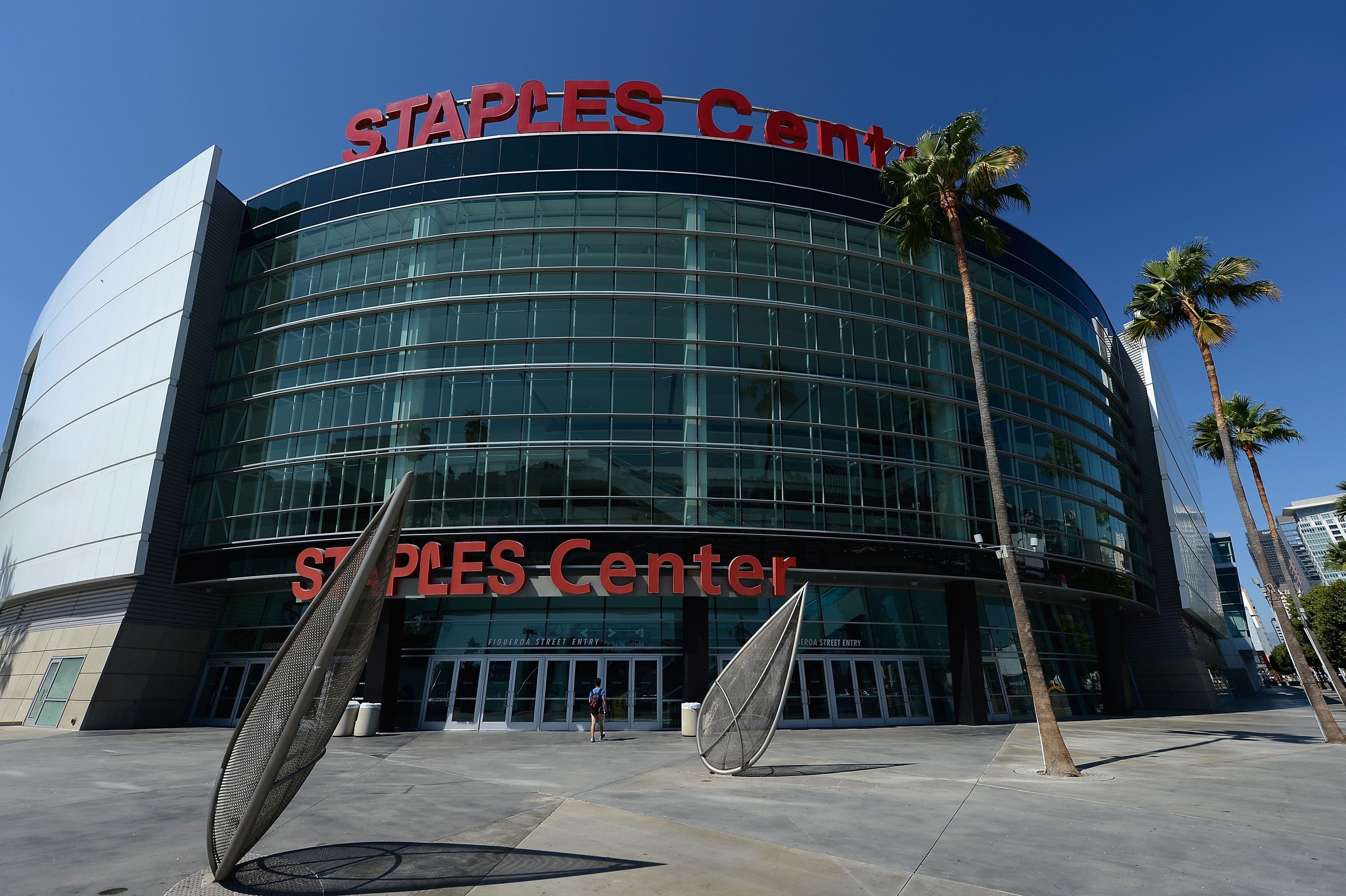Nov 26, 2021
‘Huge validation’: Why Crypto.com is putting its name on the L.A. Lakers’ arena
Value of cryptocurrencies will go much higher in the next few years: Greg Taylor
In less than one month, cryptocurrency will make it clear to the world that the nascent sector is not going away anytime soon.
As of December 25, the downtown Los Angeles arena known for decades as the Staples Centre will be renamed after the Crypto.com digital currency exchange. The company, which did not respond to interview requests, reportedly paid US$700-million to have its name plastered across the home of the NBA’s Lakers and Clippers (as well as the NHL’s Kings) for the next 20 years in a move experts say will accelerate the normalization of cryptocurrency in the minds of everyday consumers.
“These are incredibly lucrative contracts and they are always entered into with the long-term in mind,” said Chad Finkelstein, a partner at Dale & Lessmann LPP, who has worked on stadium naming rights deals in the past. “For the owners of the arena [Anschutz Entertainment Group] to grant these rights to one of the highest-profile venues in the world is a huge validation of cryptocurrency.”
Unlike so-called vice brands such as alcohol, cannabis and tobacco, Finkelstein said there is no legal reason to prevent a cryptocurrency company from putting its brand on a public venue. In fact, the Crypto.com deal marks the second time a company from that sector purchased the naming rights to a major U.S. arena, after FTX.com paid US$135 million last March to brand the home of the Miami Heat.
‘FURIOUS’ CONSUMERS?
There is an added benefit for the crypto community in general to having a company with crypto in its name sponsor a stadium, according to Jarrett Vaughan.

“It is very, very clear what it is. It is in your face. It is overt,” said Vaughan, who teaches marketing at the University of British Columbia and has been a cryptocurrency investor himself since 2017. “That kind of normalization is very important to the cryptocurrency movement.”
The deal is a real “swing for the fences move,” said Sam Maglio, a consumer psychologist at the University of Toronto, in terms of an attempt to raise brand awareness.
“You might never think of yourself as [a cryptocurrency] type of person, but then you see the name all the time and it is attached to something not all that elite or distant - but a sports arena - that seems more accessible,” Maglio said. “I think the average consumer is going to be furious for a while because of how over-the-top it is, but my guess is that they will get used to it.”
It is “not just about increasing brand awareness” either, said Vaughan, “it is about normalizing cryptocurrency in everyday conversation. The more you are aware of something like this the more likely you are maybe going to be open to talking about it.”
‘MERE EXPOSURE EFFECT’
That is actually what Ying Zhu, a marketing professor at UBC’s Okanagan campus, describes as one of the most “robust psychological phenomena” in the marketing world. It is the same principle whereby you might see the same person on public transit every morning while commuting to work and, despite never having a conversation, the constant exposure to that person will eventually generate a positive attitude towards them.
“It is the same thing for a brand,” Zhu said, noting the phenomenon is defined as the “mere exposure effect".
“If you are constantly being exposed to a brand, somehow, you just generate a positive attitude because of growing familiarity.”
The concept is linked to evolutionary psychology, she said, “because survival depends on having a positive attitude towards things that are familiar to you and being wary of things that are unfamiliar.”
The mere exposure effect is strongest when people don’t realize it is happening, Zhu said. In that way, she said Crypto.com was wise not to spend US$700 million on digital ads, as many companies in that space tend to do, “because we are exposed to over 3,000 of those kinds of ads on a daily basis such that it has become nearly impossible to pay attention to them.”
WHEN NAMING RIGHTS GO WRONG
The mere exposure effect “is even stronger when you have no preexisting knowledge of the thing” to which you are being exposed, Zhu said, adding the naming rights deal “really hits a lot of points” from an ideal strategic marketing perspective.
However, history is also riddled with examples of brands that agreed to multimillion-dollar naming rights deals - only to end up looking bad. Most people have likely never heard of CMGI, but the tech company paid US$114 million in early 2000 to put its name on the home of the New England Patriots for 15 years.
The reason nobody ever saw a single kickoff at “CMGI Stadium” is because the tech bubble burst before the naming rights deal took effect in early 2001, which reduced the company to a penny stock.
Enron is perhaps the most infamous cautionary tale in the history of corporate branding on public venues. Two years before the company’s widespread accounting fraud was exposed in 2001, it spent US$100 million on a 30-year deal to call the home of the Houston Astros Enron Field.

The Major League Baseball team ended up buying back the naming rights for just US$2.1 million in early 2002 and managed to rip down all the Enron signage on the field before that season’s opening game. The venue would eventually sign a US$100-million deal with Coca-Cola to be renamed Minute Maid field.
Given the dramatic volatility of the cryptocurrency market, signing such a long-term naming rights deal could represent a potential risk to Crypto.com should the crypto market ever plunge. That, however, is exactly why Zhu said Crypto.com was smart to tie its brand to a venue known mostly for professional sports.
“Sports always has wins and losses and if you are a sports fan, you understand that you can’t always win,” she said. “It is the same thing for investors, especially cryptocurrency investors, there are going to be wins and losses.”
‘A BIG RISK’
That is not to suggest Crypto.com is to a certain extent making a high-stakes gamble with this deal. The name itself “sounds a bit 90s akin to Pets.com, harkening back to the early internet naming days,” said University of Toronto's Maglio.
Beyond the similarity to the original dot-com era, Finkelstein said the sheer broadness of the name Crypto.com means the company may struggle to distinguish itself from bad actors in the crypto space. For example, the founder of the cryptocurrency exchange platform BitConnect has been accused of orchestrating a US$2-billion fraud on the platform’s user base.
“If any one of those other businesses engages in nefarious conduct, there is a chance that the average consumer associates that business with Crypto.com,” Finkelstein said. “They are hitching their wagon to all things crypto because they want to be the authority on all things crypto, but that might not always be a good thing.








